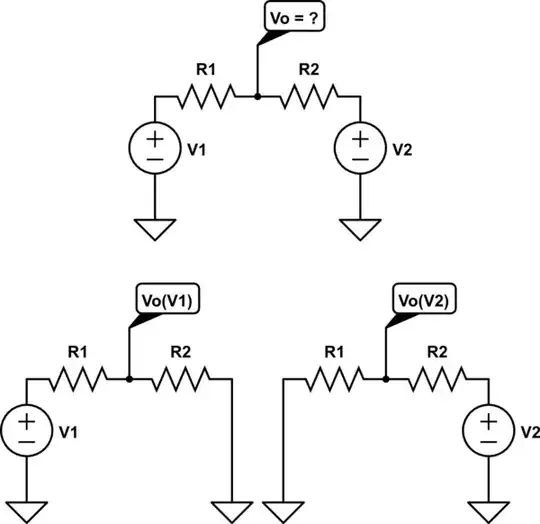For the circuit below, if the bottom terminal is -Vin and not grounded, is applying voltage divider possible at all?
If this is the case, what would the equation be? I never heard of a voltage divider with no reference ground at the bottom.
For the circuit below, if the bottom terminal is -Vin and not grounded, is applying voltage divider possible at all?
If this is the case, what would the equation be? I never heard of a voltage divider with no reference ground at the bottom.
Yes. Consider a more general case and apply the superposition theorem:

simulate this circuit – Schematic created using CircuitLab
$$ V_o = V_o(V1) + V_o(V2) = V1 \frac{R2}{R1+R2} + V2 \frac{R1}{R1+R2}$$
"Ground" is (usually) just a label we put on the point in a circuit that we want to call "Zero Volts" -it has no special magic properties.
A voltage divider will work whether or not one end of it is connected to "Ground". Vout is still proportional to the resistor values, but the total voltage is Vin-Vb (Vb = voltage at the bottom of R2), and will be shifted by the difference in voltage between Vb "ground".
Sure. The analysis is really straightforward. Let's say you have Vin1 (the positive input) and Vin2 (the negative input). The derivation is as follows (with \$i\$ being the current flowing through R1,R2):
$$ i = \frac{V_{in1}-V_{in2}}{R_1 + R_2} \\ V_{OUT} = V_{in_2} + i R_2 = V_{in_1} - i R_1 $$
It's still a voltage divider, but the "lower end" isn't 0V anymore. Still has its uses, but not as common.